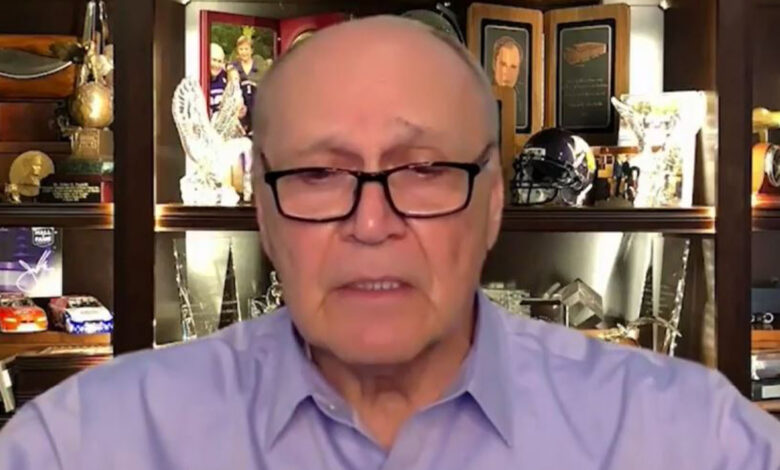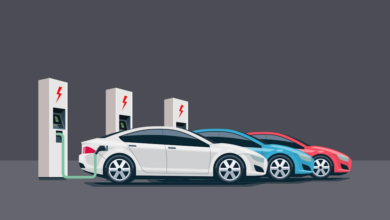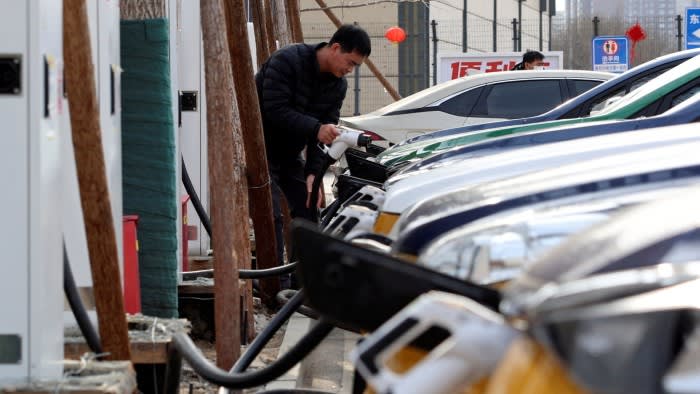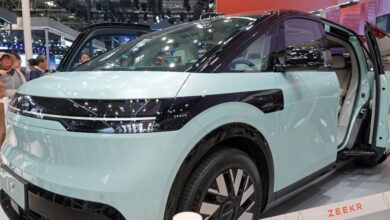‘Too soon and too fast,’ warns former GM boss over big electric vehicle push

TWO former automaker leaders speak on the current state of the EV industry – and how hybrids would have been a wiser investment.
One said that slowing EV demand is the “effect of a failed initiative.”
Bob Lutz was an executive for Ford, Chrysler, and General Motors for several years and expressed his opinions on a video call with Fox Business to discuss the recent push to phase out gasoline-powered cars in favor of EVs.
Bob Nardelli, a former chairman for Chrysler, also joined the discussion, saying that hybrids would have been a wiser decision thanks to an infrastructure established to support them.
For context, Toyota made headlines saying that automakers completely phasing out hybrids and internal combustion engines was “unwise.”
The company said that as long as customers continue to buy hybrids or gas-powered models, it would continue to refine and produce them.
“The CEO of Toyota was criticized severely for not pushing EVs,” Lutz said.
“He planned to evolve with hybrids, and who now is getting accolades for his strategic decision?”
After EV demand slowed automakers were forced to delay deliveries, slash prices, pause production, or perform layoffs to avoid bankruptcy, Toyota was praised for allocating money to refine gas-powered engines and hybrids.
“The focus on hybrids would have been well-placed as an evolution towards EV,” Lutz said.
“It would have allowed for charging stations and would have allowed for the massive grid network, maybe to bolster their base supply to be able to absorb this.
“The utilities, the electrical system in this country is going to put us at a tremendous disadvantage as we advance further with electrical demand. That’s going to be a shortfall.”
Nardelli said that while the future is certainly electric, the systemic push for people to abandon the pumps for plugs will be met with challenges.
Especially as functional public chargers continue to be hard to find.
“In the short term, I’m afraid, it’s going to be a challenge,” he said.
“It’s going to be a challenge to convince the consumer that the EV is a reliable and affordable means of transportation.”
Even with federal and state incentives and discounts, customers prefer hybrids and gas-powered cars over EVs.
Less than one percent of registered vehicles in 2022 were all-electric, and the following year the percentage rose to 7.7.
Electric vehicles vs gas
Pros and cons of EVs vs gasoline-powered vehicles
EV PROS:
- Convenient (when charging at home)
- Cheaper (depending on state or city)
- Cheaper maintenance, due to lack of mechanical parts
- Great for commuting
- Reduced CO2 emissions
- Federal and state tax incentives
- More performance (speed, handling – depending on the make and model)
EV CONS:
- Higher initial cost
- Higher insurance rates
- More frequent tire and brake replacement intervals
- Higher curb weight (thus causing more rapid wear on crucial parts)
- Low resale value
- High depreciation rates
- Lack of charging infrastructure
- Unreliable public charging (related: slow charging times)
- Poor winter and summer performance
- Lack of clean energy alternatives means more “dirty energy” from coal and nuclear sources
- Range anxiety
GAS PROS:
- Highly developed refueling infrastructure
- Fast refueling
- Cheaper insurance rates, depending on make, model, and configuration
- Established repair industry
- Lower initial cost
- Higher range before refueling, especially with hybrids
- Many manufacturers produce nearly emission-less engines
- Cheaper refueling, depending on the location
GAS PROS:
- Finite resource (related: heavy dependence on petroleum)
- Carbon emissions/greenhouse gases
- Higher repair costs
- Higher insurance rates, depending on make, model, and configuration
- Varying costs at the pump, depending on state, city, and county
Source: Car & Driver, Perch Energy, AutoWeek
Demand is growing, though not as quickly as most experts anticipated.
Studies showed that hidden associated costs like higher insurance rates, range anxiety, and higher initial costs – even with incentives – continue to steer buyers toward other options.
“You could see what’s happening out there,” Nardelli continued.
“We’re seeing the cascading effect of a failed initiative.”
A recent JD Power study showed that more new car buyers are reluctant to buy an EV, and often opt for a hybrid instead.
As of February, Toyota reported an 84 percent increase in EV and hybrid sales over 2023, with the RAV4 hybrid SUV being its most popular hybridized model.
Currently, Toyota only offers one EV in the States.
Ford also reported an uptick in hybrid sales, with a 31.5 percent increase over last year.



